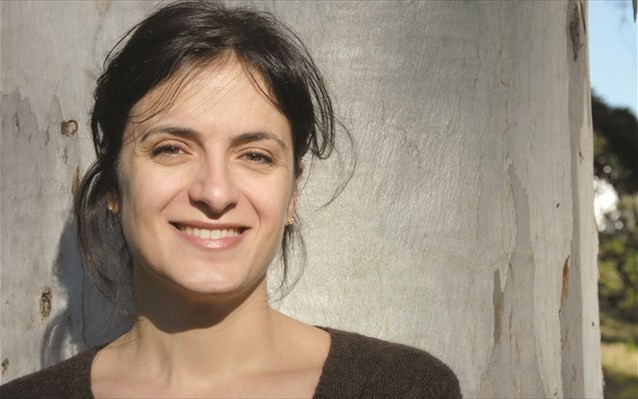Support for Greece
THE GREEK SOCIETY AND ITS INSTITUTIONS ARE GOING THROUGH VERY DIFFICULT TIMES, emanating from several years of severe economic crisis. The gross national product of
Greece decreased by almost 7% last year alone, and the unemployment rate exceeded 20%. Meanwhile, fi scal cutbacks threaten the survival of Greece’s best centers of creative potential.
A recent commentary in Physics Today (1) points out that funds are potentially available and can be used to remedy some of the above problems. Such funds, named structural funds, derive
from “value-added” (sales) taxes throughout the European Union (EU) and are to be used to support the development of the poorer member-areas of the Union. Greece is entitled, annually,
to a fraction of these European structural funds. For several years, Greece has used a sizable fraction of these funds to cover its research and technology budget. The disbursement of these
funds requires actions from both sides, the EU and Greece. In the past 2 years, for various reasons, these actions did not come to fruition, resulting in the current crisis of Greek initiatives
in education, research, and technology. This is halting the prospects of weathering the current crisis. Now is the time for European leaders to secure the survival and future development of Greece’s most competitive scientifi c and technological institutions by reinitiating these measures. To succeed, the following items need to be implemented. (i) For short-term benefi ts, release a substantial part of the EU structural
funds that are available to Greece, to be used by innovative Greek programs in science and technology. (ii) For long-term benefi ts, also use these funds to initiate a broad program promoting the close cooperation of major European research and technology centers with Greek clusters of excellence. (iii) Ensure the continued support of Greek participation in major European institutions, such as the European Molecular Biology Laboratory. (iv) Initiate a program to establish new joint EU-Greek institutions of excellence, focusing on scientifi c areas where Greece already has a strong presence in the European landscape and which could be crucial to
Greece’s further technological development. With these points in mind, 22 internationally renowned leaders in various fi elds of science and technology (2) have drafted and signed a petition addressed to Martin Schulz, President of the European Parliament; Herman Van Rompuy, President of the European Council; and José Manuel Durão Barroso, President of the EU Commission. The signatories of this petition sincerely hope that scientists and science policy leaders will take these issues seriously and will take whatever steps are in their power to address them. The petition follows: Greece is in the midst of a prolonged and deep economic recession that has already changed dramatically the lives of its citizens and threatens the very existence of its structures necessary for future recovery. To regain its forward momentum, keep alive its competitive institutions, and implement
its huge reform agenda, Greece needs our help. We are confi dent that Greece, which has contributed enormously to European culture, can do what is called for to create a brighter future. To succeed in this difficult task, special emphasis should be given among other things to science and technology, areas in which Greece possesses particularly strong institutions and human potential. By utilizing existing structural funds, and by promoting close cooperation between major European science and technology centers and existing Greek clusters of excellence, Greece can be enabled to sustain its scientifi c structures, build up its own technological future, and secure a competitive economy in the long run.
HARALD ZUR HAUSEN
Deutsches Krebsforschungszentrum, Im Neuenheimer Feld
280, 69120, Heidelberg, Germany. E-mail: zurhausen@
dkfz-heidelberg.de
References and Notes
1. T. Feder, “Science endures as conditions in Greece worsen,” Physics Today, April 2012, p. 24 (www.physicstoday. org/resource/1/phtoad/v65/i4/p24_s1?view=print).
2. The signatories of the “Support Greece” petition are Peter C. Agre, Nobel Prize in Chemistry 2003; Elizabeth H. Blackburn, Nobel Prize in Physiology or Medicine 2009; Günter Blobel, Nobel Prize in Physiology or Medicine 1999; Edmond H. Fischer, Nobel Prize in Physiology or Medicine 1992; Carol W. Greider, Nobel Prize in Physiology or Medicine 2009; Jules A. Hoffmann, Nobel Prize in Physiology orMedicine 2011; H. Robert Horvitz, Nobel Prize in Physiology or Medicine 2002; Sir Richard Timothy (Tim) Hunt, Nobel Prize in Physiology or Medicine 2001; Eric R. Kandel,Nobel Prize in Physiology or Medicine 2000; WolfgangKetterle, Nobel Prize in Physics 2001; Roger D. Kornberg, Nobel Prize in Chemistry 2006; Yuan T. Lee, Nobel Prize in Chemistry 1986; Robert, Lord May of Oxford, Royal SwedishAcademy’s Crafoord Prize 1996; John C. Mather, Nobe Prize in Physics 2006; Prof. Iain Mattaj, Director General, European Molecular Biology Laboratory; Sir Paul M. Nurse,Nobel Prize in Physiology or Medicine 2001; Sir Venkatraman Ramakrishnan, Nobel Prize in Chemistry 2009; Sir Richard J. Roberts, Nobel Prize in Physiology or Medicine1993; Hamilton O. Smith, Nobel Prize in Physiology or
Medicine 1978; Thomas A. Steitz, Nobel Prize in Chemistry
2009; Kurt Wüthrich, Nobel Prize in Chemistry 2002; and
Harald zur Hausen, Nobel Prize in Physiology or Medicine
2008.
“Two Heads Are Better”
Stands to Reason
IN 2010, BARHAMI ET AL. (1) SHOWED THAT, in perceptual decision-making tasks, “two heads are better than one,” provided they communicate with each other: Multiple decision- makers jointly adopt the more confi dent judgment, which, in ordinary circumstances,tends to be the more accurate. In his Report“When are two heads better than one and why?” (20 April, p. 360), A. Koriat shows that communication among the two heads isnot even necessary: Asking for the degree ofconfi dence of the participants and directly adopting the most confi dent judgment is an even better way of aggregating information. This suggests that the “wisdom of the crowd” could boil down to the ability to identify the crowd’s most confi dent members and abideby their judgment. These studies focus on group decisionsbased on perception or memory. When group decisions are based on reasoning, communication is focused not on individual confi dence but on shareable arguments
(2). Experimental evidence reveals a number of differences between the two scenarios. In various judgment tasks, the exchangeof arguments outperforms bargaining, even though bargaining should enable participants to form estimates of one another’s confi dence (3). The exchange of arguments often allows the group to converge on the best answer, even if defended by a minority
(4)—something that would not be possible in Koriat’s model, which links confi dence and consensus. The group can also reach a collective decision outside—and superior to—the range of individual answers available
before the discussion (5, 6). Through group discussion, participants can reach a deep understanding of the task, transferable to new problems (7). Two heads are better than one not only in the kind of perceptual or memory tasks analyzed in Barhami et al. and Koriat’s studies,but also in solving mathematical or logical problems (4) and in meeting a variety of challenges in science (8), education (9), law
(10), and politics (11). In all these cases, the authority of the more confi dent individuals can be superseded by the quality of the more convincing arguments.
HUGO MERCIER1* AND DAN SPERBER2,3
1Faculté des Lettres et Sciences Humaines, Cognitive Science Center, University of Neuchâtel, Neuchâtel 2000, Switzerland.
2Department of Cognitive Science and Department of Philosophy, Central European University, 1051 Budapest, Hungary. 3Institut Jean Nicod, Département d’Etudes Cognitives,
Ecole Normale Supérieure, 75005 Paris, France.
*To whom correspondence should be addressed. E-mail:
[email protected]
References
1. B. Bahrami et al., Science 329, 1081 (2010).
2. H. Mercier, D. Sperber, Behav. Brain Sci. 34, 57 (2011).
3. J. A. Minson, V. Liberman, L. Ross, Pers. Soc. Psychol.
Bull. 37, 1325 (2011).
4. D. Moshman, M. Geil, Thinking Reasoning 4, 231 (1998).
5. P. R. Laughlin, B. L. Bonner, A. G. Miner, Org. Behav.
Hum. Decision Processes 88, 605 (2002).
6. W. Doise, G. Mugny, The Social Development of the
Intellect (Pergamon Press, Oxford, 1984).
7. M. K. Smith et al., Science 323, 122 (2009).
8. K. Dunbar, in The Nature of Insight, R. J. Sternberg,
J. E. Davidson, Eds. (1995), pp. 365–395.
9. H. Mercier, Cognit. Dev. 26, 177 (2011).
10. D. J. Devine, L. D. Clayton, B. B. Dunford, R. Seying,
J. Pryce, Psychol. Public Pol. Law 7, 622 (2001).
11. H. Mercier, H. Landemore, Politi. Psychol. 33, 243 (2012).
Published by AAAS
The Noblest Lesson
One morning this past October, I woke up to find an email from my father. Reading the subject line, I immediately burst into tears. My father, Robert Kirshner, is an astronomy professor at Harvard University. The subject
of his e-mail was, “My Students won the Nobel Prize!” A News Focus story about that prize—awarded for the discovery of the accelerationof the expanding universe (1)—later described me as being angry. I wasn’t angry. I
was freaked out. I was worried because I knew my father to be incredibly competitive. (His cutthroat Monopoly playing style famously made my grandmother, his mother-in-law, cry.) But more important, I knew that he had dedicated the majority of his life’s work to this project. I grew up watching my father’s passion for science, his determination to understand things, the thrill he felt when he was able to synthesize ideas and understand thebigger picture. He has inspired me and taught me. And I was worried that by not getting the Nobel Prize for his contribution to this discovery, he would feel as
though he had somehow failed. But as it turns out, his response to not winning is the lesson I really value. When I spoke to him that morning, he amazed me: He was proud of the people he has worked with and taught; he was generous-spirited; he was funny; and he had perspective. What a relief! It turns out that a guy who spent his life trying to understand the immensity of the universe could put into perspective the relativeimportance of which particular earthling took home the ribbons and the medals and got to bow to the King of Sweden. It turns out that what was really important to him was the work itself, the wonder of this extraordinary universe, the honor and the fun of trying to fi gure things out, and maybe, just a little bit, the thrill of the chase. I admire all the terrifi c scientists who contributed to this greater understanding of the universe we live in, but in particular I admire my father, whose expansive understanding of what really matters taught me something of astronomical importance.
REBECCA SINCLAIR
Los Angeles, CA 90068, USA. E-mail: [email protected]
Reference
1. Y. Bhattacharjee, Science 336, 26 (2012).



